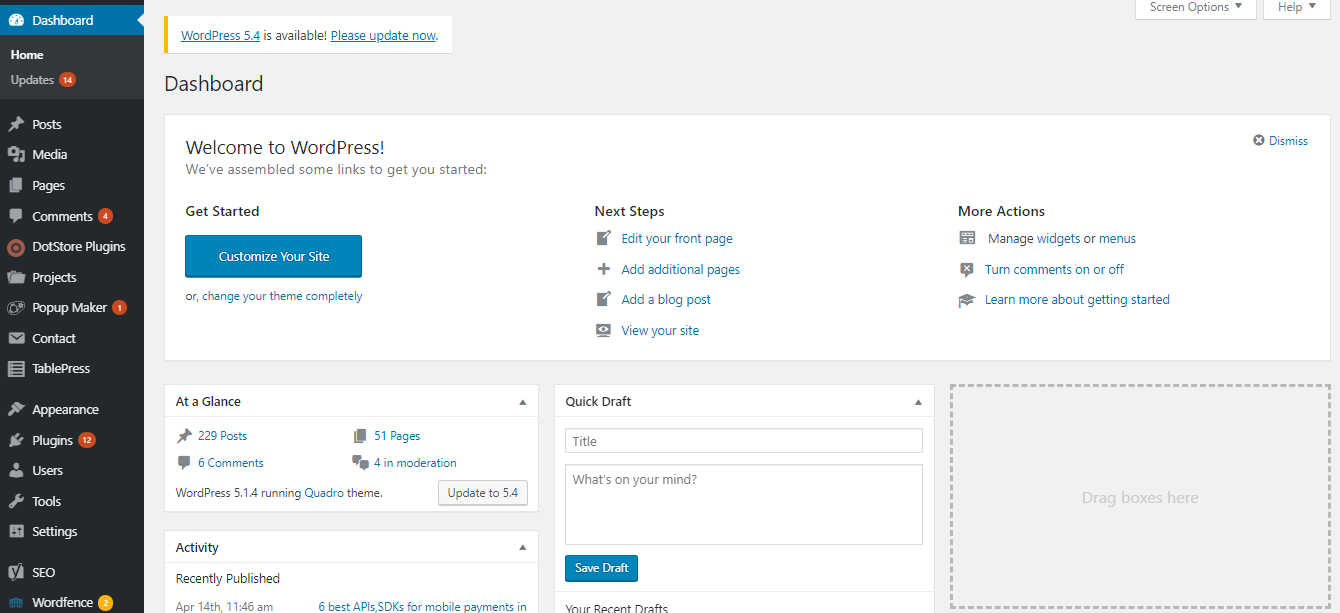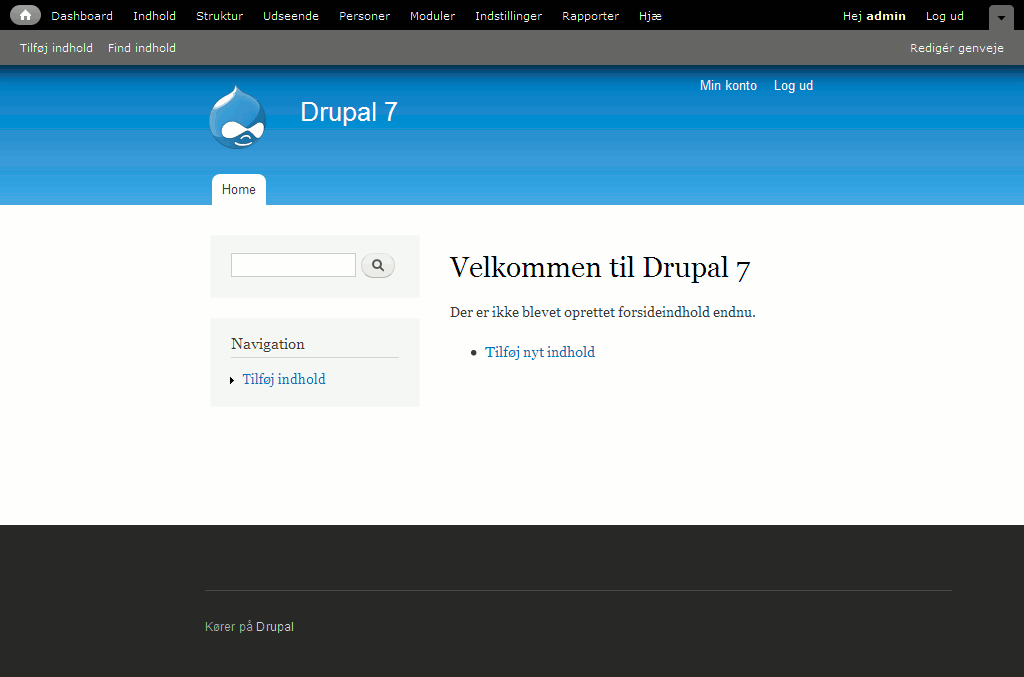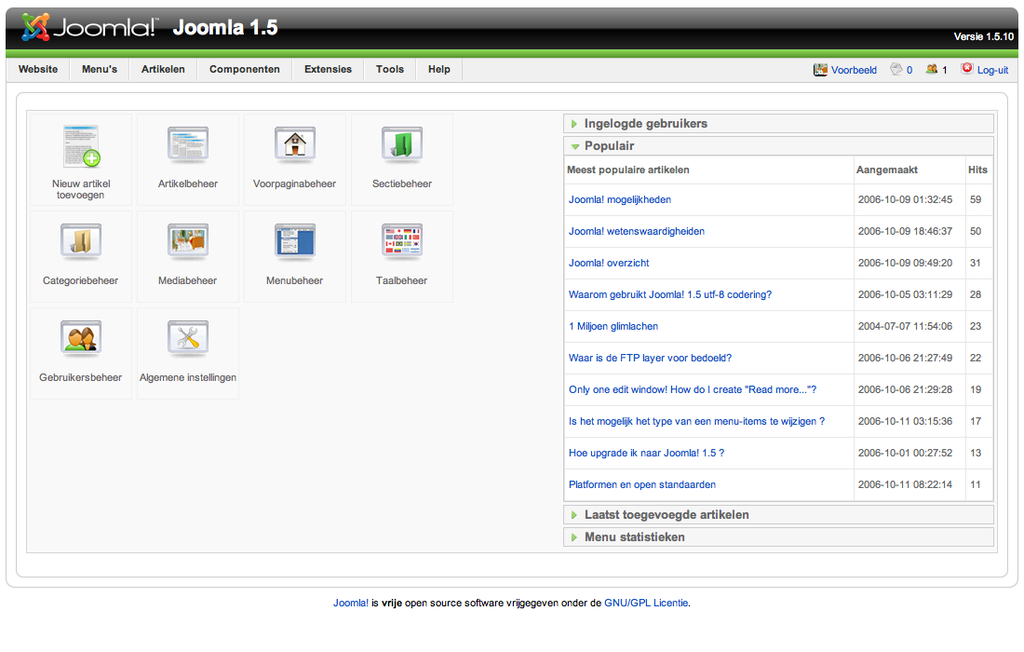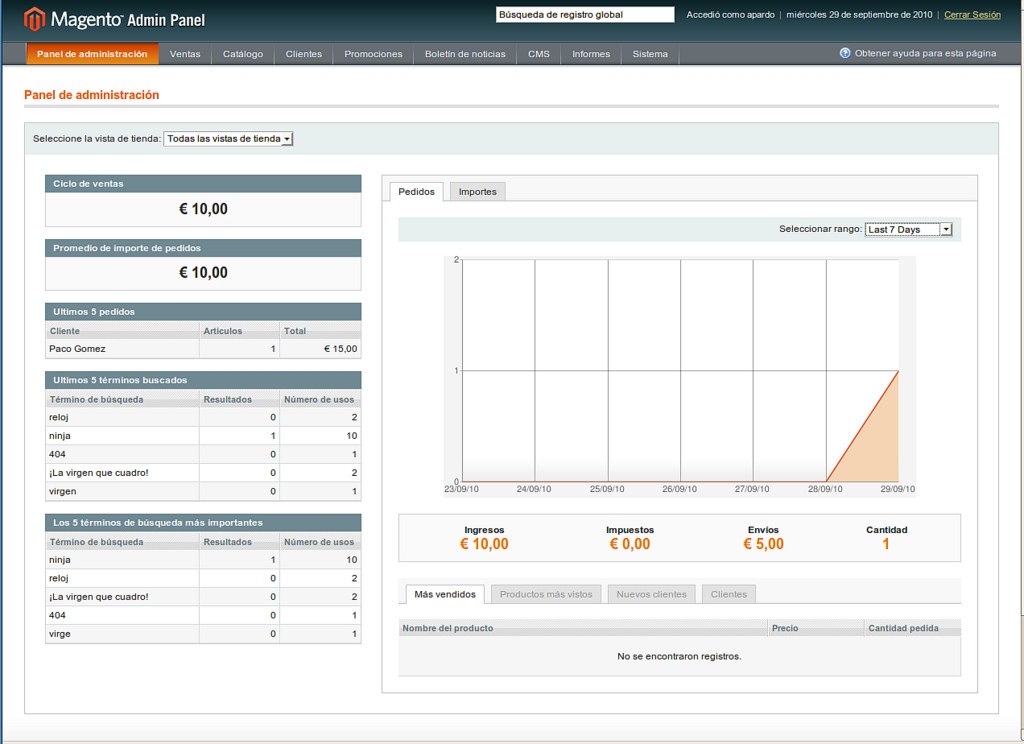Best and Most Popular CMS Platforms: Is it precise to state that you are considering what CMS Platform to use for building your site?
A CMS (Content Management System) Platform lets you successfully make a site without seeing or writing any code (in any event for a large portion of them). There are bunches of CMS alternatives accessible, which implies you may battle to pick the best CMS for your requirements.
In this article, we’ll be clarifying why it’s so imperative to pick the correct CMS Platform for your site. We’ll additionally share our top picks for the best CMS platforms alongside an examination such as some are just easier to install, extend & use, thanks to some thoughtful planning by the lead developers.
Here are 10 of the most usable CMSs on the web to use in your next task, so you can pick the one that meets your requirements best.
1. WordPress

What is there left to state about WordPress that hasn’t just been said? The PHP blogging platform is by a long shot the most famous CMS for blogging, and presumably the most popular CMS in general. It’s an extraordinary platform for beginners, because of their incredible documentation
furthermore, super-snappy installation wizard. Five minutes to a running CMS is truly acceptable. Also the way that the most core elements & plugins auto-update from inside the backend, without downloading any file and with clicks only.
For those clients curious about HTML or other markup language, a WYSIWYG Editor is given straight out of the case. The backend format is smoothed out and natural, and another client ought to have the option to handily discover their way around the administration section. WordPress additionally comes with the support of image gallery, other multimedia uploading support (i.e: video, audio etc..)
For designers/developers, the theming language is genuinely basic and clear, also the Plugin API.
The WordPress Community is very helpful. WordPress most likely has the broadest base of themes & plugins to browse.
An extraordinary part about the WordPress community is the measure of help and documentation online you can discover on almost every part of customizing WordPress. In the event that you can dream it, chances are it’s already been done with WordPress and documented somewhere.
On the off chance that you need assistance with anything from Installing a Theme to upgrading the speed of your WordPress site, you may reach us here.
As web development company, we also provide WordPress web designer and developer services, please check them out as well.
Pros
- WordPress offers you the flexibility and freedom to develop any kind of website (grocery store, auction site, membership site etc..)
- it does not need technical skills or coding knowledge, very easy to use & to create great looking pages on your site.
- You can make money online with couple of easy steps.
- A well designed for search engine optimization (SEO),it creates digital marketing friendly url, categories & tags for your posts, if you need more help install seo plugin.
Cons
- Hosting, domain name selection and assignments are your own responsibilities, code security & backups as well.
- Since WordPress offers such a significant number of choices thus much adaptability, it can some of the time feel a touch of overwhelming when you’re beginning. This is the reason numerous amateurs use drag and drop page builder plugins for WordPress
Pricing
- WordPress has no cost except hosting charges (normally from $7.99/month) & domain name registration (around $9 – $15 per year)
- Couple of hosting companies offer you free domain and free SSL if you purchase their package.
2. Drupal

Drupal is another CMS that has a huge, dynamic network. Rather than concentrating on blogging as a platform, Drupal is all the more an unadulterated CMS. A plain installation accompanies a huge amount of discretionary modules that can include heaps of fascinating highlights like forums, user blogs, OpenID, profiles and that’s just the beginning.
One of Drupal’s most well known highlights is the Taxonomy module, an element that takes into account various levels and kinds of categories for content types. Also, you can discover a lot of expert Drupal Themes, which are fit to be tweaked and worked with. You can likewise get Drupal Plugins.
Drupal likewise has a functioning network & community driving it, and has incredible help for modules and other general inquiries.
Pros:
- It’s easy to add content on Drupal & CPT(custom post types are flexible with many options)
- Likewise wordpress, different modules available that you can add to your site.
- community support is available like wordpress & joomla.
- You can create new user roles and specify their permissions easily.
Cons:
- It is tricky to change out your appearance theme of your site as compared to other platforms.
- Most Drupal sites have a heavily customized themes made by an engineer, which can be pricey.
3. Joomla!

Joomla is another well known free open source CMS platform that accompanies bunches of various layouts/templates and extensions. It’s allowed to utilize, however you’ll require domain name and hosting.
It was first released in 2005, so like WordPress, it’s been going for a considerable length of time. Joomla is stuffed with highlights, and many web has offer a 1 click installation. In any case, it’s actually a perfect CMS platform for engineers and experienced site designers, so it’s not such a decent alternative for amateurs.
Pros
- Use Joomla to run an e-commerce store as there are extensions available for this.
- Joomla gives you bunches of adaptability and a lot of choices. It’s a decent decision in case you’re building something confused or bespoke.
- Despite the fact that Joomla is especially helpful for engineers, you can in any case use it regardless of whether you would prefer not to ever contact a line of code. It’s anything but difficult to alter your substance.
- Like WordPress, Joomla is open source, and there’s loads of network bolster accessible on the off chance that you stall out.
Cons
- Indeed, even Joomla fans will let it out can be truly mind boggling. Contingent upon what you need to do with it, you may well need to employ a designer to assist.
- There aren’t that numerous alternatives for extra expansions. In case you’re utilized to a CMS like WordPress, which has a large number of accessible topics and modules that expand the center usefulness, you may be frustrated by Joomla.
- There can be some similarity issues on the off chance that you have a variety of extensions and modules installed.
4.Shopify

Shopify is another all-in-one facilitated CMS platform. You won’t have to purchase hosting, any other software, or oversee things like updates and backups.
It has a clear simplified interface. It underpins in-store deals, which is incredible on the off chance that you have a physical store just as an online one.
Pros
- You can accept PayPal & credit and debit cards through Shopify’s integrated payment solution as a default payment gateways of shopify store.
- Dozens of extensions and themes available for Shopify store.
- You don’t have to upgrade your shopify plan if you do little bit extra sales like bigcommerce does.
- It has 24/7 support through live chat, email, phone, and even Twitter.
Cons
- It will cost you high if you end up adding lots of third-party apps for your store.
- Shopify apps are very limited, you may find many simple things are not available.
Pricing
Shopify pricing packages are similar to BigCommerce except it does not move up to the next plan based on a certain dollar figure in sales.$29/month is the cheapest plan it offers & $299/month with many more advance options. If you pay for entire year you get discount.
5.Magento

Magento is a ground-breaking open source eCommerce stage from the tremendous programming organization Adobe. There’s a free version you can download and introduce on your own hosting account, called Magento Open Source.
On the off chance that you need to utilize this, at that point SiteGround Magento hosting would be the least demanding approach to begin.
On the off chance that you like, at that point you can pay for Magento Commerce. This accompanies full help, and is facilitated for you, however it’s over the top expensive.
Pros
- It is highly customization with lots of third party extensions available on the internet that an add extra features to your website.
- You can handle many customers and products if you use magento and your business
- Website performance is always perfect if a site is made in magento
- Big brand names like Nike, Ford, and Coca Cola prefer to use Megento
- You have lots of payment integration options available: PayPal, cash on delivery, and bank transfer already built-in
Cons
- If you are new in eCommerce world, Magento will be difficult option for you.
- To find out good magento developers is the trickiest part.
- Finding a support is difficult as well, but you have to rely on public development forums.
Pricing
Magento isn’t cheap! starting price of a magento price can be around $22,000/year which is quiet expensive for new businesses.
Have some time? Visit our website or LinkedIn page to know more.



